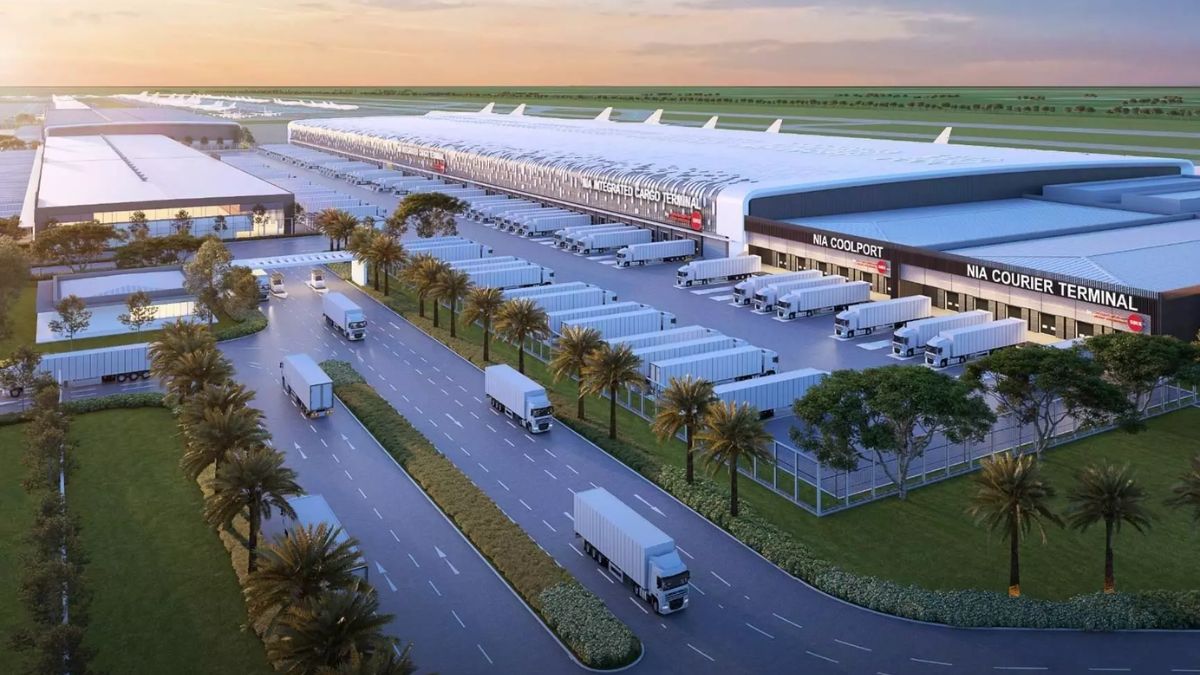Noida International Airport is gearing up to become a pivotal hub for specialized cargo, targeting the pharmaceutical, agricultural, and mobile technology sectors. Set to be operational by 2024, the airport is strategically positioning itself to cater to high-value, time-sensitive shipments, aligning with India’s growing role in global supply chains.
Located in Jewar, Uttar Pradesh, Noida International Airport is being developed as a major logistics gateway for North India. The airport’s state-of-the-art cargo infrastructure is designed to handle a diverse range of goods, with a particular focus on the pharmaceutical, agricultural, and mobile phone industries. These sectors have been identified as key drivers of the airport’s cargo strategy due to their significant growth potential and the increasing demand for swift, reliable logistics solutions.
The pharmaceutical sector, with its stringent requirements for temperature-controlled environments, stands to benefit greatly from the airport’s advanced cold chain facilities. The airport will offer specialized storage and handling capabilities, ensuring that pharmaceutical products, including vaccines and other critical medicines, are transported safely and efficiently. This is particularly important as India continues to expand its pharmaceutical exports, supplying essential drugs and vaccines to countries worldwide.
Agricultural exports, another focal point for the airport, will also gain from the enhanced logistics infrastructure. With India being one of the largest producers of fruits, vegetables, and other perishable goods, the airport’s dedicated agri-cargo facilities will enable faster and more efficient transport of these products to global markets. The proximity of Noida International Airport to major agricultural regions in North India further strengthens its potential as a key hub for agri-exports.
Mobile technology shipments are also a priority, reflecting India’s position as a major manufacturing hub for mobile phones and electronics. The airport aims to provide expedited services for high-value mobile devices, ensuring that manufacturers and suppliers can meet the demands of both domestic and international markets with minimal delays.
The airport’s strategic location near the Delhi-Mumbai Industrial Corridor (DMIC) and its connectivity to major highways and rail networks further enhance its appeal as a cargo hub. This infrastructure will support seamless multimodal transport, reducing transit times and costs for shippers.
As part of its long-term vision, Noida International Airport is also planning to develop an integrated logistics ecosystem, including warehousing, distribution centres, and value-added services. This approach is expected to attract significant investment from logistics companies, boosting the region’s economic growth and creating thousands of jobs.
Once fully operational, Noida International Airport is projected to handle millions of tonnes of cargo annually, positioning itself as a key player in India’s logistics landscape. By focusing on high-growth sectors like pharmaceuticals, agriculture, and mobile technology, the airport is set to play a crucial role in supporting India’s export ambitions and enhancing its global trade competitiveness.

